Why does love feel like a drug—and why does heartbreak hurt so much? This isn’t just emotional talk. It’s neuroscience. From dopamine highs to oxytocin crashes, your brain rides a rollercoaster when you fall in love and even more so when you fall apart. In this post, we’ll dive deep into the biology of love, withdrawal, and healing. If you’ve ever felt like a breakup broke your brain, you’re not wrong—and we’re here to show you the science behind that pain and how recovery actually works.
Table of Contents
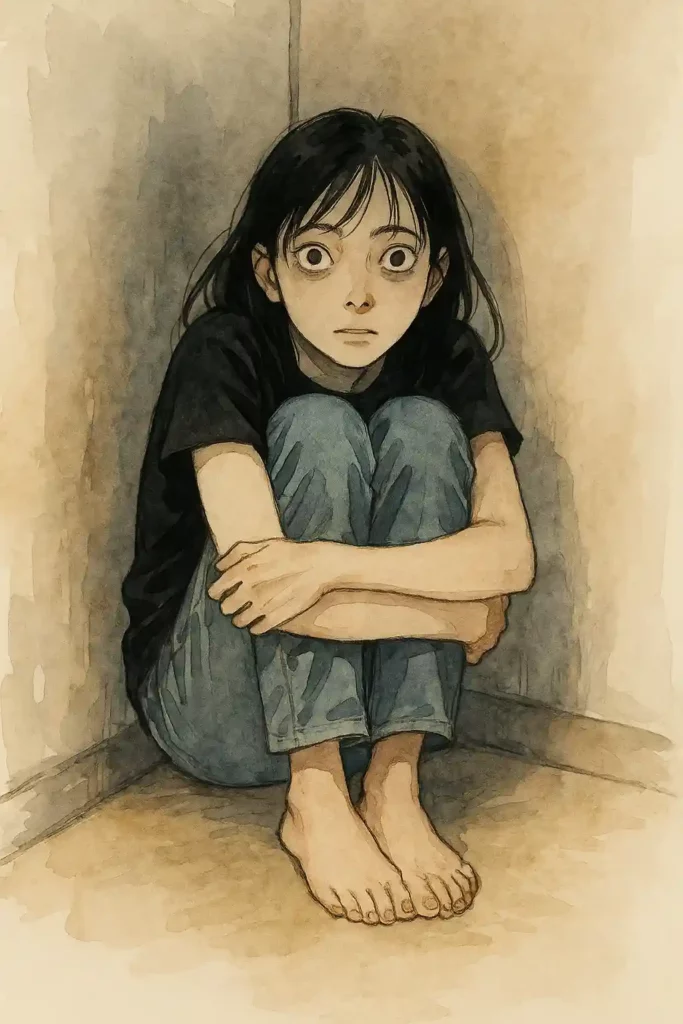
Love Is a Drug: Why Heartbreak Feels Like Withdrawal
Falling head over heels sets off a rush of dopamine in the brain’s reward centers, much like a potent drug high. That’s why new love feels euphoric and all-consuming. But when a love is lost, your brain reacts as if it’s been cut off from an addictive substance. Pleasure chemicals plummet while stress hormones surge, leaving you craving your ex’s presence and feeling actual physical pain. In heartbreak, the nucleus accumbens (the craving center) lights up and your body goes into full withdrawal mode – it’s not “in your head,” it’s a real neurological response.
This is why heartbreak can cause symptoms eerily similar to drug withdrawal: obsessive thoughts, sleeplessness, even aches and nausea. Your brain is essentially screaming for the dopamine it lost. Understanding that you’re not “weak” – that your body is literally reacting to the loss of its favorite chemical high – can be validating. It takes time for your neurochemistry to rebalance after a breakup. Heartbreak hurts so much because, biologically, you’re coming down from an addiction to love. For a deeper dive into this phenomenon, check out the full article Love Is a Drug which explores the neuroscience behind love and withdrawal.
Sources: Fisher et al., 2010 (love activates same brain areas as cocaine); Smith & Zhang, 2018 (breakups trigger craving centers)

Falling in Love: The Addictive Brain High
Have you ever wondered what happens in the brain when you fall in love? Science shows it’s not just poetry – it’s biology gone wild. Early-stage romance floods your brain with feel-good neurotransmitters. Dopamine spikes light up the ventral tegmental area (VTA) and other reward regions, the same ones activated by addictive drugs. This is why new love can feel exciting, obsessive, even a little crazy – your brain is literally addicted to the reward of your partner’s presence. You might replay their texts in your mind or feel “high” just thinking about them. It’s not weakness or obsession; it’s your wiring driving you toward what it sees as a vital reward.
This powerful brain chemistry also explains why heartbreak feels so intense. When the relationship ends, those same circuits crash into withdrawal, amplifying pain and longing. Importantly, understanding that love’s initial “obsession” isn’t craziness – it’s chemistry – can help you be gentler on yourself. The brain’s addiction to love is a natural drive to bond and reproduce, not a personal failing. And when love is lost, the intensity of your grief is a sign of how deeply those neural pathways were engaged. Learn more about the brain’s reward system in love and loss in What Happens in the Brain When You Fall in Love, which delves into love’s addictive power.
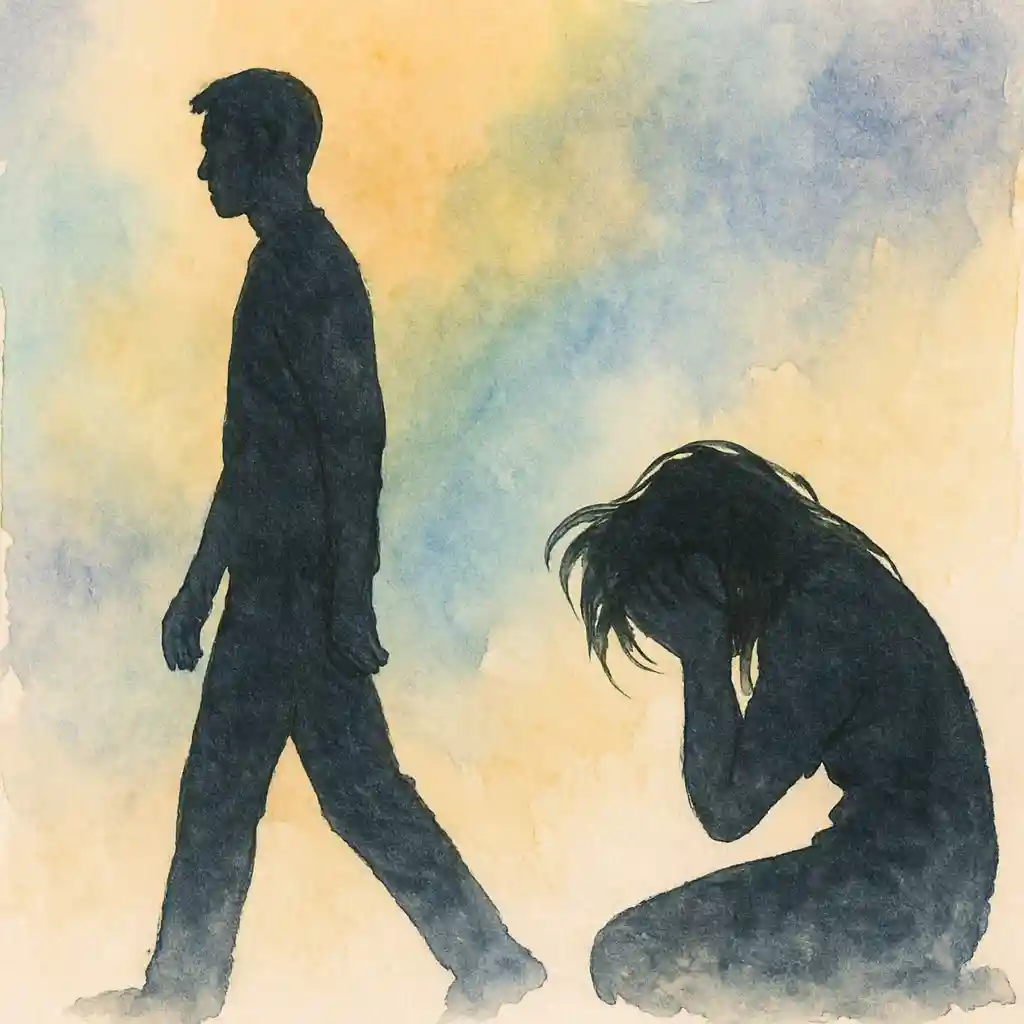
Love Withdrawal: Breakups Hurt Like Addiction
Breaking up doesn’t just break your heart – it hijacks your brain. When love is torn away, the brain’s reward and stress systems go into overdrive. The feel-good chemicals (dopamine, oxytocin, serotonin) that once flowed freely are suddenly cut off. In their place, cortisol (the stress hormone) floods your system. This abrupt chemical crash is why a bad breakup can cause very real physical symptoms: you might lose sleep, stop eating, or even feel chest pain. Brain scan studies confirm that the brains of the recently heartbroken show activity in the same areas as someone going through cocaine withdrawal. In other words, your brain thinks you’ve lost a vital source of survival – and it panics accordingly.
One tormenting aspect of “love withdrawal” is the obsessive loop of thoughts it creates. Just as an addict craves a fix, a broken-hearted person may compulsively check their ex’s social media or replay “what if” scenarios. Psychologists even liken it to “ex-seeking behavior” – your brain is desperately seeking the lost reward. The key realization here is that your intense craving and anxiety after a breakup are biologically based. Recognizing this can replace self-blame with self-compassion. You are not overreacting; you are experiencing a genuine neurochemical withdrawal. In time, these symptoms ease as your brain slowly readjusts. For more insight into why breakups mimic addiction, read The Shocking Science of Love Withdrawal which explores the parallel between heartbreak and substance withdrawal.

Heartbreak Recovery: Calming Your Brain & Healing Faster
“How long will this pain last?” is one of the most common post-breakup questions. Heartbreak recovery has no one-size timeline, but neuroscience offers hope. Initially, you’re in a biological storm: love’s loss is processed like physical pain in the brain (the anterior cingulate cortex registers social rejection similarly to actual injury). This is why your chest literally aches and why you might feel exhausted and anxious in the weeks after a breakup. During this acute phase, stress hormones like cortisol spike and the brain’s reward circuits frantically seek relief, making you feel desperate and unfocused.
The good news: with time and self-care, your brain does stabilize. Dopamine and cortisol levels gradually return to normal. New routines and support from friends start forming fresh neural pathways for comfort. Studies suggest that:
- Some people notice relief after a few weeks, as the initial “shock” withdrawal subsides.
- For others, it can take a few months for sleep, mood, and obsessive thoughts to normalize.
Patience is essential. Every heartbreak recovery is unique, but the brain’s remarkable ability to rewire means the intensity will fade. By around the three- to six-month mark, many report they can think of their ex without the same gut-wrenching pain, indicating the brain’s reward circuits have adjusted. Remember, needing time to heal is not weakness; it’s biology. Give yourself compassion as your neural chemistry finds equilibrium again. For a detailed look at the healing timeline and tips to calm your brain, see Heartbreak Recovery Time: How to Calm Your Brain and Heal Fast.
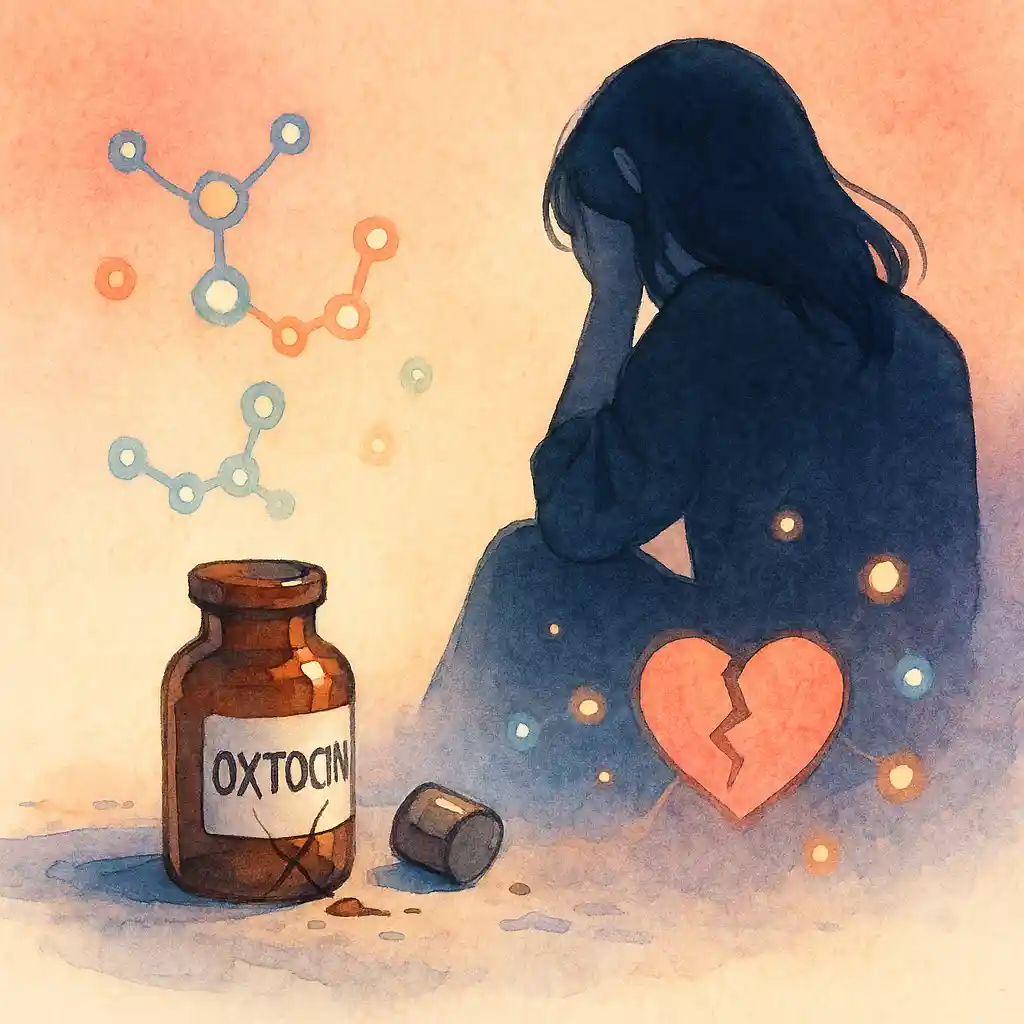
Oxytocin and Heartbreak: Why Love Hurts So Much
Not all heartbreak pain is about dopamine; a lot of it comes down to oxytocin, the so-called “love hormone.” Oxytocin floods our brains during physical touch, intimacy, and trust-building moments – it’s the chemical that makes us feel bonded and safe with a partner. Over time, your partner literally becomes woven into your brain’s sense of security. But when a relationship ends, that oxytocin supply is abruptly cut off. Your brain, suddenly deprived of a crucial bonding chemical, can go into a tailspin. In animal studies, for example, prairie voles separated from their mates showed depression-like behaviors linked to oxytocin disruption. Humans are more complex, but the principle stands: a broken bond = biochemical withdrawal.
Ironically, the same oxytocin that makes love feel warm and secure can make separation feel excruciating. Higher oxytocin levels often correlate with greater attachment and even attachment anxiety. When the bond is threatened or broken, people with oxytocin-rich bonds tend to experience:
- Intense anxiety and worry about the loss
- Fear of loneliness or abandonment
- Obsessive longing for the person who left
No, you’re not “crazy” for feeling like part of you is missing – your brain is genuinely reacting to a biochemical void. This measurable crash in oxytocin levels post-breakup leaves a person in what feels like free-fall. The good news is that understanding oxytocin’s role can guide healing: seeking healthy touch (like hugs from friends or cuddling a pet) and social support can gently boost oxytocin again. To learn more about how this hormone fuels both love and heartache, read The Surprising Science of Oxytocin and Breakups.

Supplements for Breakup Recovery: Healing from Within
Heartbreak often comes with a side of biology gone haywire – disrupted sleep, loss of appetite, mood swings. While there’s no magic pill for grief, certain natural supplements might ease the rough edges of breakup recovery. One culprit in post-breakup blues is a drop in serotonin (the mood-stabilizing chemical). Many people find themselves anxious, depressed, or unable to sleep. A supplement called 5-HTP – a building block of serotonin – can gently support your brain’s serotonin levels. In one small study, people going through breakups who took 5-HTP reported feeling less stressed and were sleeping better by about the third week:. It’s no instant cure, but it might help lift the heaviest fog of sadness just a bit.
Another common issue is the surge of cortisol (stress hormone) that heartbreak triggers, leaving you tense and sleepless. Omega-3 fatty acids, found in fish oil, act as a natural buffer for stress. Research shows that omega-3 supplements can reduce anxiety and even stabilize cortisol rhythms in people under stress. In breakup terms, omega-3s may help steady your ship in the storm – people report less emotional exhaustion and better daily resilience when taking them. There’s also evidence linking low omega-3 levels with the emotional numbness some feel after loss. Restoring those levels (through diet or supplements) might help you “feel” again and reconnect with life. Of course, no supplement can magically mend a broken heart, but these supports can shore up your biological foundation while you heal. Always consult a professional before starting any supplement regimen. For a full discussion on 5-HTP, omega-3s, and other helpful nutrients, see The Best Supplements for Breakup Recovery.
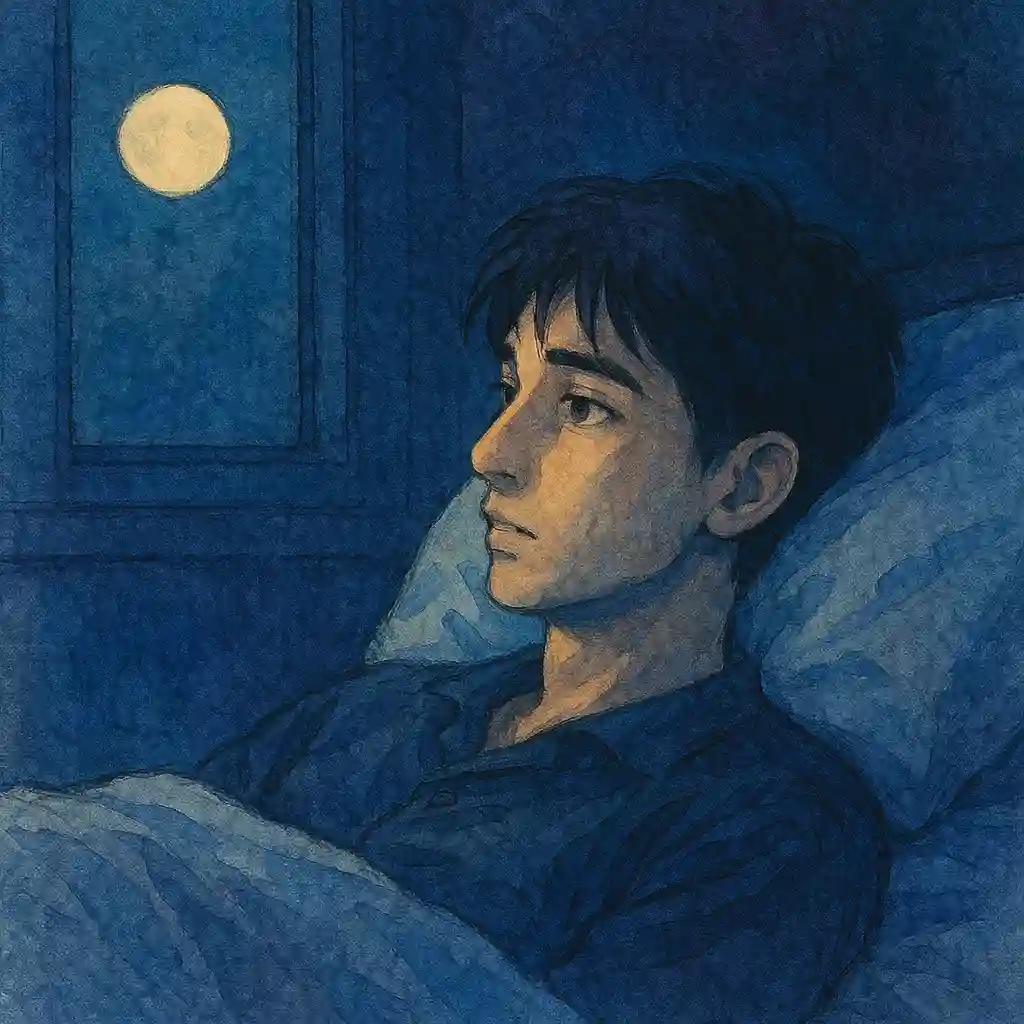
Heartbreak & Sleep Loss: Why Breakups Steal Your Sleep
If your heartbreak is keeping you up at night, you’re not alone. Heartbreak and insomnia are frequent bedfellows. When you lose someone, your brain perceives it as a threat to your well-being. The amygdala – your fear center – stays on high alert, flooding you with anxiety and racing thoughts just as you’re trying to drift off. You might lie there for hours, mind looping through what-ifs and memories. Biologically, your nervous system is stuck in fight-or-flight mode, as if love loss were a literal danger. This heightened arousal makes quality sleep nearly impossible. Even when you do sleep, it’s often shallow and restless, because stress chemicals are disrupting your normal sleep cycles (including REM, the dream stage that helps process emotions).
For many, heartbreak triggers a vicious cycle: lack of sleep makes it harder to regulate emotions, which then makes the heartbreak feel even worse. In fact, researchers note that post-breakup insomnia and depression-like symptoms go hand in hand. It can look like this:
- Heartbreak stress causes you to lose sleep.
- Poor sleep lowers your emotional resilience and mood.
- Worsened mood and anxiety intensify the feeling of heartbreak.
This downward spiral is the painful truth behind those sleepless nights. Interestingly, younger people may have it even harder – studies of teens and young adults show breakups spike their insomnia rates, likely because their emotion-regulation systems are still developing. The key takeaway? You’re not losing sleep because you “can’t move on;” you’re losing sleep because your brain is in survival mode. To break the cycle, it helps to practice calming routines (meditation, journaling, etc.) to convince your brain it’s safe again. With time, as your heartbreak heals, your sleep should gradually improve too. For more on why heartbreak wrecks sleep and how to cope, read Heartbreak and Sleep Loss: The Painful Truth Behind Sleepless Nights.

Love Addiction: How Heartbreak Mirrors Withdrawal
Is “love addiction” real? While you won’t find it in medical manuals, the concept is very real to our brains. Falling in love sets off such a potent reward in the brain that scientists compare it to addictive behavior. We develop a tolerance (needing more time and closeness to get the same “high”), and when love is gone, we experience classic withdrawal symptoms. Heartbreak mimics addiction withdrawal on a neurochemical level. Think about it: intense cravings to contact your ex, obsessive thinking, anxiety, and even physical distress – these mirror what someone quitting nicotine or opioids might feel. It’s not an exaggeration to say your brain was “hooked” on your partner.
The idea of love addiction also helps explain why some people stay in toxic relationships or rebound quickly – their brain is chasing the chemical high of love, even when it’s unhealthy. Researchers note patterns akin to substance addiction: tolerance (you crave increasing closeness), withdrawal (distress when apart), and even relapse (going back to a bad relationship despite the harm). Recognizing this pattern is empowering. It means that if you’re struggling immensely after a breakup, you’re not “crazy” – you’re in withdrawal. With time away from the “substance” (your ex) and healthy coping, the brain can rebalance. People do recover and even find love again in a healthier way. The pain you feel now is proof of how deeply you can love – and that same depth will eventually fuel your healing. To understand this concept more deeply, see The Surprising Science of Love Addiction, which explores how and why heartbreak can hurt like a drug withdrawal.

Rebound Relationships: How New Love Helps Your Brain Heal
Rebound relationships often get dismissed as shallow or doomed, but biologically they can serve an important purpose: helping your brain reset after heartbreak. After a breakup, your levels of dopamine and oxytocin are in the gutter, which is partly why you feel so awful. Entering a new positive connection – even a light-hearted rebound – can gently jump-start those chemicals again. Laughing with someone new, sharing a hug or deep conversation, triggers small releases of dopamine and oxytocin, which soothe the withdrawal your brain has been experiencing. In essence, a healthy rebound acts like a bridge, preventing you from languishing in a neurochemical drought.
Research even suggests that people in rebound relationships often report better emotional health and higher self-esteem than those who stay single and ruminate. A good rebound isn’t about using someone or ignoring your grief – it’s about rebuilding confidence and restoring social connection. It provides what one might call “emotional scaffolding.” Of course, not all rebounds are equal. Starting a fling purely out of panic or to make an ex jealous likely won’t help you heal. But if a new person brings genuine comfort and positivity, they might actually accelerate your recovery. Your brain gets a reminder that it’s still capable of joy and bonding, which can blunt the pain of loss. In short, sometimes beginning a new chapter helps close the old one. If you’re curious about the science behind rebounds (and how they can be both beneficial and tricky), check out The Surprising Science of Rebound Relationship Biology for a deep dive.
FAQ
Q: Why do scientists say “love is a drug”?
A: Because falling in love activates the same brain reward centers as addictive drugs. High dopamine makes love euphoric, and when it’s gone we experience cravings and pain. In other words, the brain responds to lost love like withdrawal (Love Is a Drug explains this in detail).
Q: What happens in the brain when we fall in love?
A: In early love, our brain’s reward system (especially areas like the VTA) lights up with dopamine and oxytocin, creating feelings of pleasure and obsession. It’s an addictive “high” orchestrated by evolution to bond us to partners (see What Happens in the Brain When You Fall in Love for more).
Q: Why do breakups hurt like an addiction withdrawal?
A: Breakups abruptly cut off the brain’s supply of reward chemicals (dopamine, etc.) that it got used to in the relationship. The result is a stress response and intense cravings for your ex, much like a drug addict craving a fix. This “love withdrawal” is covered in The Shocking Science of Love Withdrawal.
Q: How long does it take to recover from heartbreak?
A: It varies, but often the acute pain and obsession ease within a few weeks to months. The brain needs time to rebalance neurochemicals and form new routines. With healthy coping, most people feel significantly better by around 3-6 months. (Heartbreak Recovery Time discusses the healing timeline.)
Q: What hormone makes heartbreak physically hurt?
A: Oxytocin – the “bonding hormone” – plays a big role. When you lose your partner, oxytocin levels plunge, contributing to that visceral, physical ache and panic. High oxytocin that made you attached now magnifies the pain of separation (explored in Oxytocin and Breakups).
Q: Can supplements help you get over a breakup?
A: They might ease some symptoms. For example, 5-HTP can boost serotonin to improve mood and sleep, and omega-3 fatty acids can reduce stress and inflammation. They’re not cure-alls, but alongside self-care they can support your body’s recovery (Supplements for Breakup Recovery covers this).
Q: Why can’t I sleep after a breakup?
A: Heartbreak puts your brain in “alarm” mode – stress and anxiety hormones stay high, and intrusive thoughts make it hard to relax. This hyperarousal leads to insomnia. It’s your brain’s misguided attempt to protect you from social danger. As explained in Heartbreak and Sleep Loss, it’s a common biological response.
Q: Is love addiction real and related to heartbreak?
A: While not an official diagnosis, “love addiction” describes how some people become chemically and emotionally dependent on the feeling of love. Heartbreak then triggers classic withdrawal symptoms (cravings, obsession, anxiety) similar to quitting a drug. The Science of Love Addiction details how heartbreak mimics withdrawal.
Q: Do rebound relationships help or hurt the healing process?
A: A healthy rebound can actually help by restoring confidence and giving your brain doses of bonding chemicals (oxytocin, dopamine) that ease withdrawal. But a rebound done for the wrong reasons (like jealousy or avoidance) may just mask pain. Rebound Relationship Biology discusses how genuine new connections can aid recovery.
In conclusion: Heartbreak may be one of the most challenging human experiences, but as these nine insights show, there is real science behind the pain – and hope in how we heal. Your brain and body are reacting to lost love in measurable ways: like an addiction withdrawal, a state of stress, even a form of grief that affects your sleep and health. By understanding that love is as much biology as emotion, you can be kinder to yourself in the healing process. Each person’s recovery is unique, but our brains are built to adapt. In time, the raw wounds of heartbreak do mend. The fog lifts, sleep returns, and new sources of joy begin to light up the brain’s reward centers once more. If you’re going through it now, take heart: you’re wired to survive this. And as you’ve learned in these summaries (and can explore further in the full posts), every tear and longing has a purpose and a path to resolution. Healing is coming – and you’re never alone in what you feel. Here’s to love, loss, and the resilience of the human heart and brain.
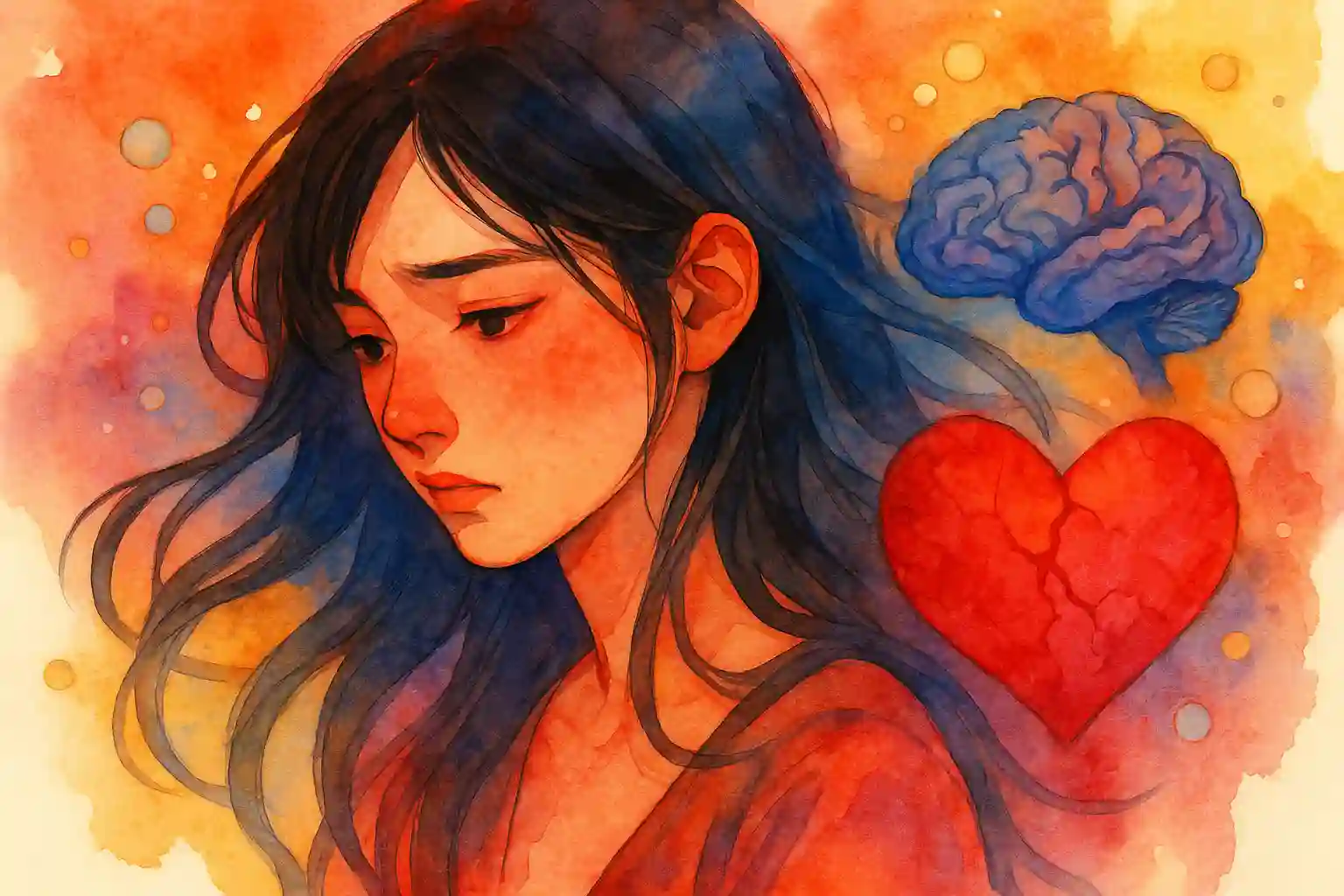
Leave a Reply